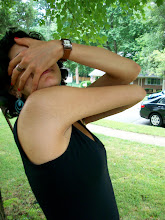It is with some uncertainty that we embark on our semester-long journey of performance, community and humanitarian adventures. After an entire week of blizzards and snow storms that blanketed the DC region, our first shows at Sidwell Friends School as well as a week's worth of rehearsals were cancelled. Waiting patiently for the roads to clear, for someone to dig us out of three feet of snow, I couldn't help but notice some curious similarities between this miniature disaster of ours and one the scale of Hurricane Katrina
Like Katrina, our snowstorm was, first, a natural phenomenon; an unavoidable circumstance. But as soon as the action of the event subsides, the aftermath of such a natural disaster depends upon people, society and community. How efficiently can we work together to clean up the mess? How well can we use the resources we have? Who and what is prioritized? When 'disaster' strikes, we are forced to depend on each other. Although our day-to-day lives as we see them are individual, independent from the lives of others, only when we are left at the mercy of something beyond ourselves can we recognize the value of community.
As the city began to open up the roads, the rest of us went to work with shovels and bags of salt, slowly chipping away at the layers of snow it had taken mother nature mere hours to bestow upon us but would take us days to clear up.
I, personally, met neighbors I didn't know I had. I had to borrow a shovel from the house on the right and park my car in another neighbor's parking space while the driveway was cleared. These disasters have the potential of forging extraordinary communities because we are all somewhat powerless against the forces of nature unless we work together.
Perhaps this is where Hurricane Katrina truly became a tragedy; it revealed the gaping holes within our society. It shamelessly showed who was not willing to put their pride and ego aside to work for a greater good.
Bay Area writer, Rebecca Solnit's recent book, "A Paradise Build in Hell" explores precisely the phenomenon of disaster and the humanity that arises from moments of desperation. She writes, "Disaster, along with moments of social upheaval, is when the shackles of conventional belief and roles fall away and the possibilities open up." As we all were forced to surrender to the piles of snow falling outside, mother nature seemed to be teaching us to turn inwards and reflect; to realize how much we depend on each other and how we can spend our time strengthening rather than ignoring the communities that inherently form. Certainly, we may all be better able to connect to what Katrina really means for our world with this relatively quaint 'natural disaster' of our own.
For more information about Rebecca Solnit and her editorial page at The Nation Magazine:
http://www.thenation.com/directory/bios/rebecca_solnit

